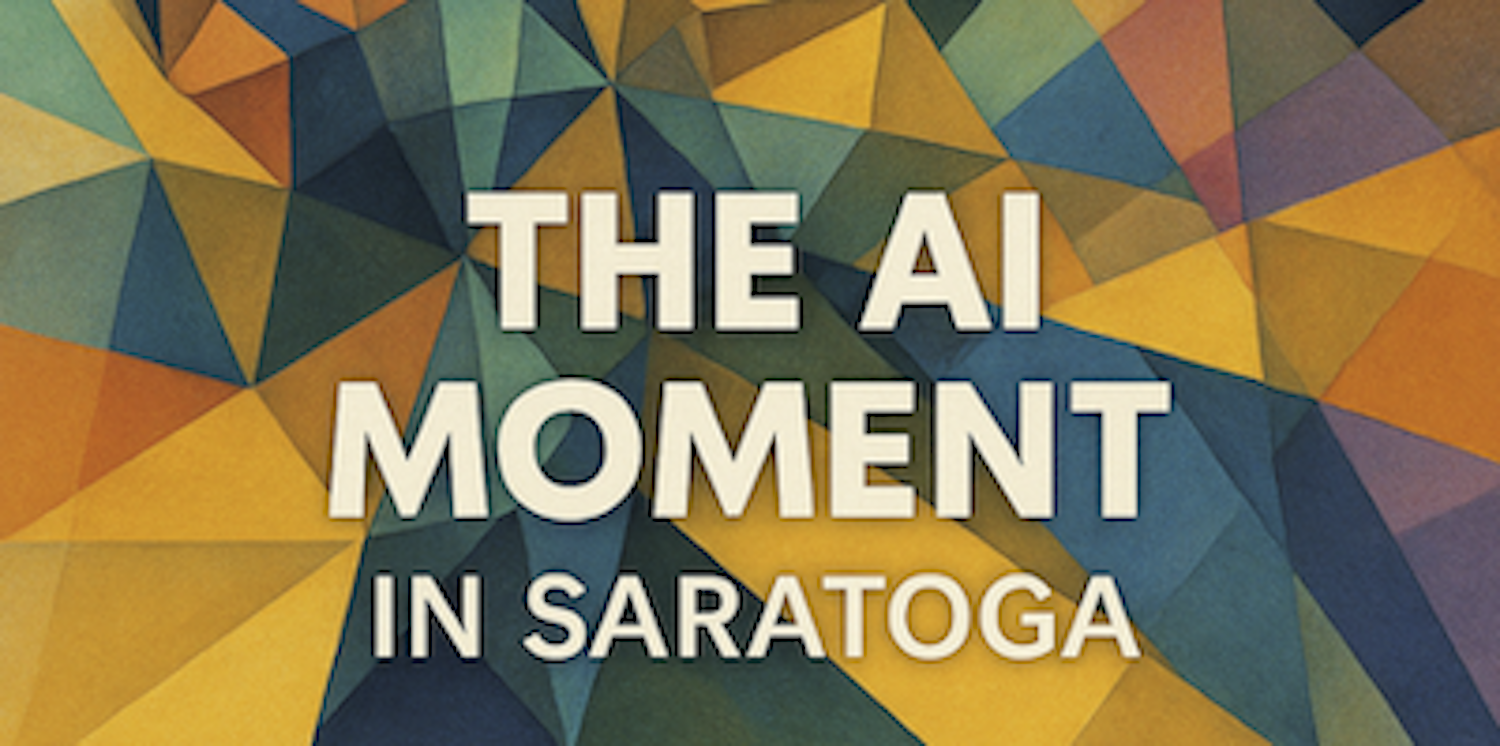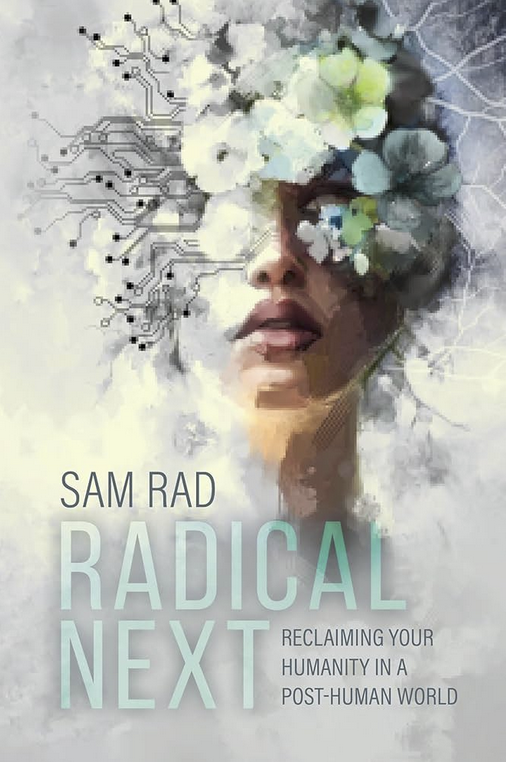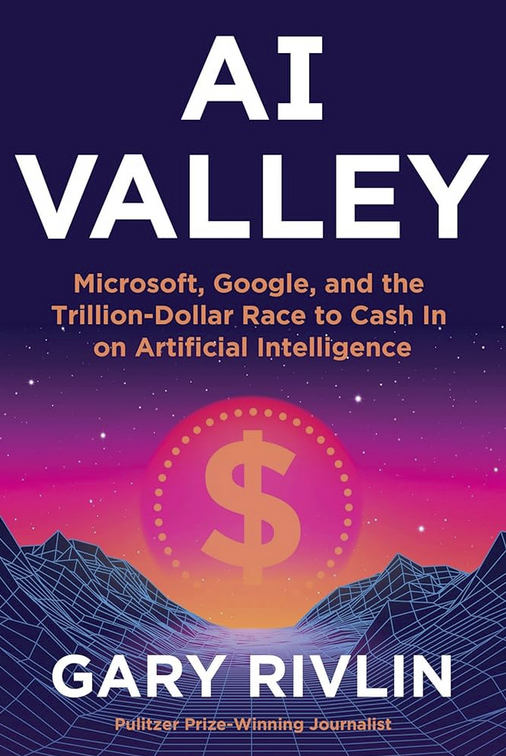Exploring the AI Moment
Sunday, October 5 at Universal Preservation Hall
The Saratoga Book Festival has scheduled three compelling conversations focused on Artificial Intelligence Sunday, October 5. The first will start at 11 a.m. at Universal Preservation Hall. The last will end at 3 p.m.
Authors, scholars, and innovators will explore how AI is changing the way we create, work, and live — and what it means for our shared future.
“AI is not going away,” says SBF Founder Ellen Beal. “Its influence is going to expand, and the need for people to understand what’s happening is only going to grow. I wanted to give Saratoga a chance to explore this together — in a way that’s thoughtful, balanced, and grounded.”
With a background in nonfiction publishing, Beal has devoted her career to fostering literary engagement and community discourse. She founded the Saratoga Book Festival independently, initially securing fiscal sponsorships before it became part of the Saratoga Springs Public Library’s programming in its third year.
The idea of dedicating a day to a single, pressing issue has been percolating since the festival’s start.
“I’ve always wanted a ‘City Lab’ component on Sunday, a place for a deeper dive into topics that can’t be captured in a single author talk,” say Beal. This year, when she and a circle of trusted readers began planning in January, AI quickly emerged as the clear choice.
“I’d been following the coverage in The Atlantic, Scientific American, The New York Times, and The New Yorker,” she says. “It was the topic I was most interested in — and the one I thought our audience needed to hear about most.”
For Beal, the goal is not to stoke fear but to offer clarity. “This isn’t going to be like the sky is falling,” she says. “We want to explore all the fantastic things you can do with this technology — and also talk seriously about the guardrails we need.”
Beal and her team have curated the AI track as a three-part journey, each session illuminating a different facet of this fast-moving frontier.
AI for Creatives
With Mason Stokes, Sarah Sweeney, and Moderator Robert Lippman
11:00 am - 12:00 pm
The series opens with a session exploring AI’s impact on art, writing, and education. Sarah Sweeney, a Skidmore faculty member celebrated for her bold use of AI in art — including a deeply personal project where she built a conversational bot modeled on her late father — will share what happens when creativity and code collide. Joining her is Skidmore English professor Mason Stokes, who will explore how writers are grappling with AI’s growing role in storytelling. The discussion will also examine how universities are adapting to students’ use of AI, wrestling with issues of ethics, authorship, and originality.
Radical Next: Reclaiming Your Humanity in a Post-Human World
With Sam Rad
12:30 to 1:30 p.m.
The second session shifts to AI’s impact on human well-being, featuring futurist and anthropologist Sam Rad. A Colgate graduate with a background in gaming and sociology, Rad is known for translating complex technological ideas into language that resonates with the public. Her forthcoming book, Radical Next: Reclaiming Your Humanity in a Post-Human World, frames the conversation: How much technology do we actually want in our lives? What happens when AI companions begin to replace human ones? How do we stay grounded when algorithms start shaping our choices — and our relationships? Expect an unflinching look at the human dimension of AI, from social media’s influence on selfhood to the psychological toll of living in a hyper-digital world.
What Comes Next?
A Conversation with Gary Rivlin and Matthew Lucas
2 to 3 p.m.
The day culminates in a conversation between two powerhouse voices. Matt Lucas, chair of Skidmore’s multidisciplinary AI program, will argue that businesses that fail to embrace AI will be left behind. Sharing the stage is Pulitzer Prize–winning journalist Gary Rivlin, author of AI Valley: Microsoft, Google, and the Trillion-Dollar Race to Cash in on Artificial Intelligence. who brings a reporter’s eye to the ethical and regulatory challenges of generative AI. Rivlin will raise the alarms about where society is falling behind — and what deadlines we may already have missed.
This will be no dry book talk, Beal promises, but an urgent, unscripted exchange. “AI is evolving so fast,” she says. “We wanted to create space for a real-time conversation about where we are right now — and where we’re heading.”



